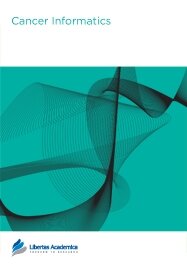

Publication Date: 24 Feb 2015
Type: Review
Journal: Cancer Informatics
Citation: Cancer Informatics 2015:Suppl. 2 25-36
doi: 10.4137/CIN.S17294

The cancer stem cell hypothesis is that in human solid cancers, only a small proportion of the cells, the cancer stem cells (CSCs), are self-renewing; the vast majority of the cancer cells are unable to sustain tumor growth indefinitely on their own. In recent years, discoveries have led to the concentration, if not isolation, of putative CSCs. The evidence has mounted that CSCs do exist and are important. This knowledge may promote better understanding of treatment resistance, create opportunities to test agents against CSCs, and open up promise for a fresh approach to cancer treatment. The first clinical trials of new anti-CSC agents are completed, and many others follow. Excitement is mounting that this knowledge will lead to major improvements, even breakthroughs, in treating cancer. However, exploitation of this phenomenon may be more successful if informed by insights into the population dynamics of tumor development. We revive some ideas in tumor dynamics modeling to extract some guidance in designing anti-CSC treatment regimens and the clinical trials that test them.
PDF (2.20 MB PDF FORMAT)
RIS citation (ENDNOTE, REFERENCE MANAGER, PROCITE, REFWORKS)
BibTex citation (BIBDESK, LATEX)
XML
PMC HTML

This is the first time for us to submit a manuscript to Cancer Informatics. We thank the peer reviewers for their insightful comments, which have improved our manuscript markedly. We were pleased to find that the staff were extremely helpful and kept us informed of the progress of the submission step-by-step. Our experience with Cancer Informatics has been tremendous. Thank you very much!
Facebook Google+ Twitter
Pinterest Tumblr YouTube